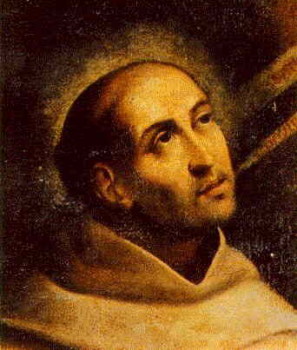(Numbers 24: 2-7, 15-17; Psalm 24: 4-9; Matthew 21: 23-27)
When Jesus had come into the temple area, the chief priests and the elders of the people approached him as he was teaching and said, “By what authority are you doing these things? And who gave you this authority?” Matthew 21:23-27
There are not enough hours in the day for me and my thirst for knowledge.
I subscribe to 4 daily newspapers – all but one still come in print to my driveway; I am constantly reading articles suggested on social media, most of them related to faith (and sometimes politics); I am a trivia junkie …
Learning is not a bad thing … until it becomes distracting.
Take our faith as an example.
We should learn as much as we can about the history and origins of the Catholic Church. We need to know about the foundation at Pentecost, the journeys of the Apostles, the divisions that have occurred – the church councils, the great debates over the true nature of Christ, the Eucharist and the role of Mary. We need to know about the reformation, the counter-reformation, the bloody French revolution and so much more.
We should also learn about the Liturgy. It helps us to understand the Mass when we know why we do the things we do.
However, in the midst of filling our brains with knowledge, we must not forget that while God loves to teach us His ways, he prefers to be in our hearts.
I once had a friend who studied theology and the Church fathers while on a spiritual journey to deepen his faith. Every day he would come home and tell his wife, “Honey, wait until I tell you what I learned today from Thomas Aquinas” or Augustine or a Vatican II document … and his very wise wife would look at him and say “That’s great, but how will you change your life tomorrow?”
God wants us to be smart, but he also wants us to have wisdom, both intelligence and acceptance of God’s love in the heart.
Today we see in the Gospel that Jesus is confronted by critics who are questioning him about the authority he has to teach. They wonder more about his credentials than they do about the content of his teachings. That’s a little like wondering where the priest at the ambo went to seminary, rather than listening to the words of his homily.
Today the Church honors St. John of the Cross, a doctor of the Church, who is perhaps most famous for his “Dark Night of the Soul” in which he describes the process a soul must endure in order to reach a “high and happy union” with God.
St. John had experienced this when he was locked in a cell for weeks with nothing but his thoughts and a desire to rely solely on God for survival.
Much of his “Dark Night” writings involve the purification of the soul, which means a gradual detachment of the many things we cling to in our lives. Worldy things. Things of the flesh. Things that keep us from wanting to experience God’s love.
Would knowledge be among those things from which to detach?
I don’t think so. God gave us brains so that we could fill them with knowledge.
But that is not enough. We cannot “learn” ourselves into heaven. We need our hearts to be as full as our heads, if not more so.
They say some people come to the faith or deepen their spirituality through the intellect, while others do it through emotion and love.
This is not an “either-or” kind of thing. It’s a “both-and” … and a call during this Advent season to embrace your dark nights of the soul, always keeping an eye on the light at the end of the tunnel.
